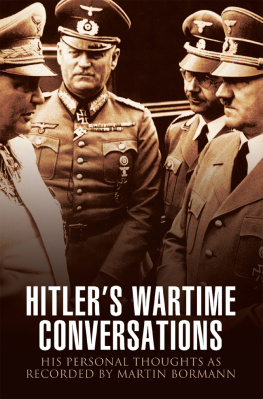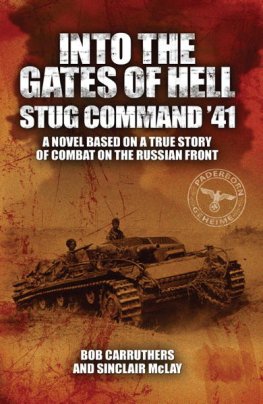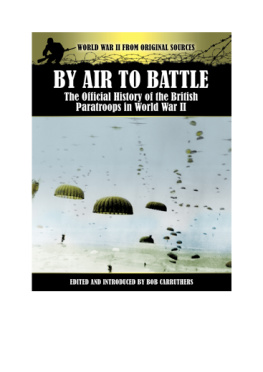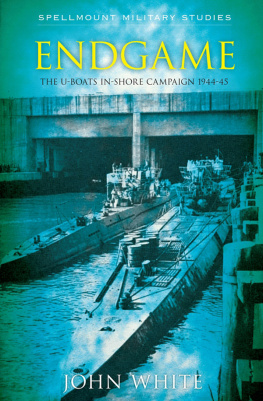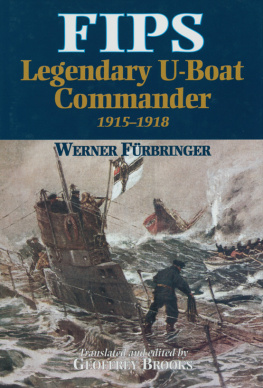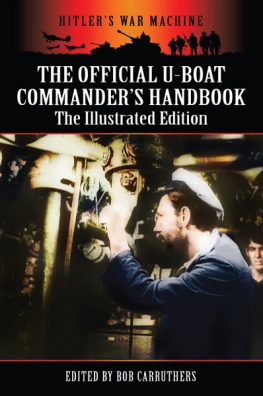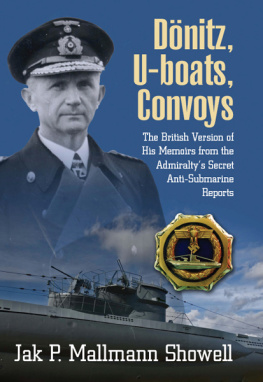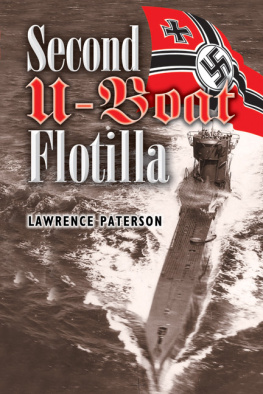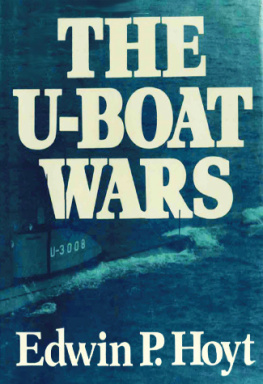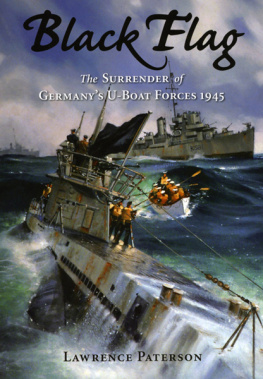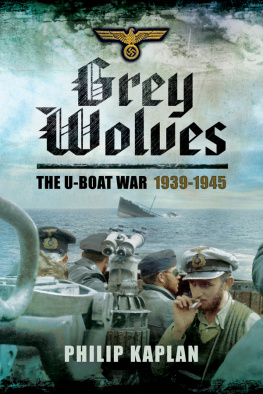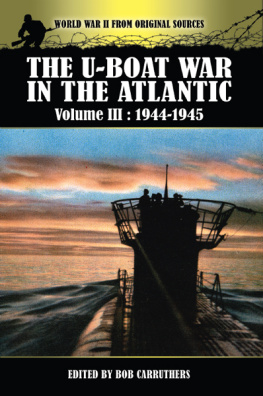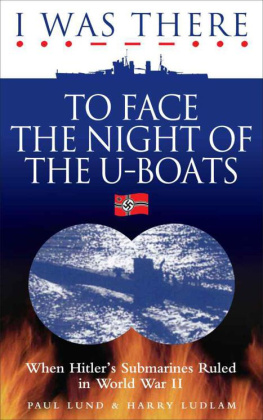This edition published in 2013 by
Pen & Sword Maritime
An imprint of
Pen & Sword Books Ltd
47 Church Street
Barnsley
South Yorkshire
S70 2AS
First published in Great Britain in 2011 in digital format by
Coda Books Ltd.
Copyright Coda Books Ltd, 2011
Published under licence by Pen & Sword Books Ltd.
ISBN: 978 1 78159 157 4
EPUB ISBN: 978 1 47384 443 8
PRC ISBN: 978 1 47384 450 6
The moral right of Bob Carruthers to be identified as the author of this work has been
asserted in accordance with the Copyright, Designs and Patents Act, 1988.
A CIP catalogue record for this book is
available from the British Library
All rights reserved. No part of this book may be reproduced or transmitted in any form or
by any means, electronic or mechanical including photocopying, recording or by any
information storage and retrieval system, without permission from the Publisher in
writing.
Printed and bound in India
By Replika Press Pvt. Ltd.
Pen & Sword Books Ltd incorporates the Imprints of Pen & Sword Aviation, Pen & Sword
Family History, Pen & Sword Maritime, Pen & Sword Military, Pen & Sword Discovery,
Pen & Sword Politics, Pen & Sword Atlas, Pen & Sword Archaeology, Wharncliffe Local
History, Wharncliffe True Crime, Wharncliffe Transport, Pen & Sword Select, Pen &
Sword Military Classics, Leo Cooper, The Praetorian Press, Claymore Press, Remember
When, Seaforth Publishing and Frontline Publishing
For a complete list of Pen & Sword titles please contact
PEN & SWORD BOOKS LIMITED
47 Church Street, Barnsley, South Yorkshire, S70 2AS, England
E-mail:
Website: www.pen-and-sword.co.uk
THE U-BOAT WAR
F or the brave men who manned the U-Boat fleet the uneven struggle played out between 1939 and 1945 was a real tragedy of catastrophic proportions. In 1939 at the very outset of the war it was already clear to Karl Dnitz that the U-boat mission was futile. As weapon systems, the Type II and Type VII U-boats of 1939 were already inadequate for the task ahead and there were simply not enough of them. To make matters worse, their torpedoes were faulty and their enemies were infinitely superior in every material respect. In their capacity for raw courage and endurance the men of the U-boat fleet demonstrated their determination and dedication to duty.
However, despite some justifiable anxiety, the men of the British Royal Navy and their allies were never close to being outmatched by the U-boats and proved themselves equally tough, resolute and, when occasion demanded, they too would prove totally ruthless.
In December 1941 when Hitler made his typically misguided decision to declare war on the USA the balance tipped even further away from the U-boat fleet. The immense resources of the US Navy and air force secured the prospect of victory. As new aircraft types came into service and Iceland was opened up to allied aircraft the air gap, the unprotected patch of the mid Atlantic, grew ever smaller. In 1944 the air gap was closed altogether but by then Dnitz had finally accepted defeat in the North Atlantic and ordered his U-boats to withdraw.
A willingness to make the supreme sacrifice in the face of insurmountable odds can be viewed as a noble quality, but it is still futile nonetheless. Blood will never overcome steel and the slender resources of the U-boat fleet were insufficient to bring about the strategic victory which they strived to produce. Despite all of the odds ranged against them, the U-boats did, for a brief time, succeed in wreaking tremendous havoc among allied shipping, and during its short ascendancy the U-boat fleet gave Churchill one of his most genuine and serious bouts of concern for Britains continued survival. So serious were Churchills concerns that he later confessed that the Battle of the Atlantic was the only thing that ever frightened me.
Grossadmiral Karl Dnitz. Oberbefehlshaber der Kriegsmarine Dnitz was the commander of the U-boat fleet from 1936 until 1945. In 1943 he was appointed to command of the Kreigsmarine as successor to Grossadmiral Erich Raeder. Following Hitlers suicide on 30th April 1945 under the terms of his last testament, Hitler nominated Dnitz to succeeded Hitler as Head Of State (Staatsoberhaupt) and also Supreme Commander of the Armed Forces.
The obvious dangers of serving in the U-boat fleet combined with the highly persuasive activities of the Nazi propaganda machine put a strong gloss on the U-boat war which lionised the achievements of men like Gunter Prein, Joachim Schepke and Otto Kretschmer, but it was a telling statistic that by 1941 two of these heroes were dead and the third was in allied captivity.
It is notoriously difficult to measure the effectiveness of the U-boat campaign. There is no question that the U-boat activities proved massively destructive. Obviously a great deal of vital war equipment and supplies were denied to the allies, but the allied ship yards, particularly after America entered the war proved themselves capable of replenishing the losses and eventually the tonnage launched far outstripped the rate of loss, and despite all of the endeavours to the contrary the allied mercantile fleets actually grew in size as the war progressed.
There was clearly a massive material loss and a damaging effect on allied morale the reverberations of which, as we have seen, reached as far as Churchill himself. However, the actual statistics are difficult to asses with certainty and it is impossible to come up with an overall measure of success or failures - boats were involved in mine laying exercises as well as direct attacks on allied ships. What is known is that altogether nine U-boats were lost in the first five months of war in 1939 and the sinking of 122 merchant ships was directly attributed to U-boat action. In 1939, the first calendar year of the war, for every U-boat lost, some thirteen allied ships were being sent to the bottom.
As the U-boat was both the hunter and the hunted constant vigilance was the watchword at all times. The sudden appearance of a destroyer or aircraft could transform this relatively relaxed scene in an instance.
Twenty-four U-boats were lost during 1940 against a loss of 471 allied ships, the loss of which were attributed to U-boat action. This was to prove to be the high point of the U-boats with almost twenty allied ships sunk in exchange for each U-boat which was lost.
In 1941, the turning point of the war in the Atlantic was already in sight. The rate of U-boat losses continued to climb with 35 boats sunk for a reduced annual tally of 432 ships sunk by U-boat action. An exchange rate of just over twelve allied ships sunk for each U-boat sunk. A lower rate than had been achieved in the first year of the war and a sharp decline on 1940.
During 1942, the rate of U-boat destruction rose sharply as 86 boats were sunk in return for 1159 allied ships. This was approaching the level of destruction which, if maintained, could actually threaten the lifeline to the UK and it was this dark hour which gave Churchill serious grounds for concern. Despite all the extra resources deployed by The Kriegsmarine however, the rate of ships sunk by each boat lost steadfastly hovered around thirteen.
By 1943, the Enigma breakthrough was having its effect. Convoy tactics had improved, air cover and radar had improved dramatically and in consequence the number of U-boats sunk climbed to a catastrophic 242 boats. Only 463 allied ships had been sunk in return. The exchange rate had fallen from thirteen allied ships sunk for every U-boat lost in 1942 to just under two allied ships sunk for each U-boat lost in 1943. The allies could make good their losses but with the fortunes of war running against Germany on every front, the evidence was now plain to see - the U-boat cause was hopeless. The rapidly mounting losses and other important factors such as the constantly shifting balance of technology in favour of the allies, who were gaining in firepower, resources and tonnage of shipping launched, all conspired to render the decision to carry on the battle beyond 1943 criminally suicidal.


